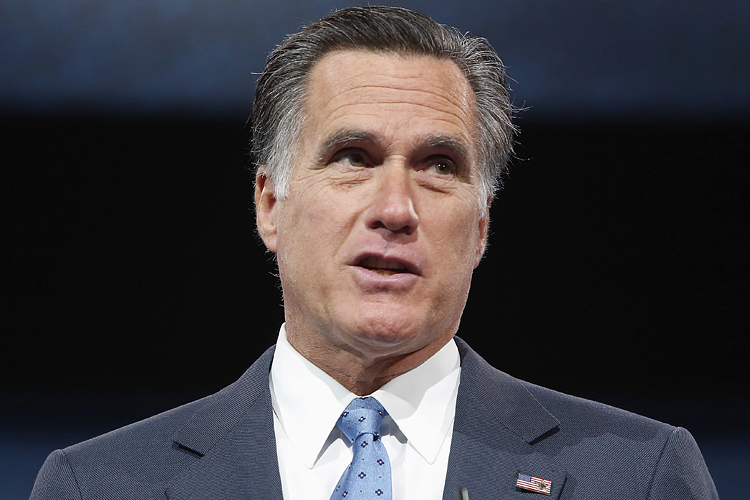Remember Mitt Romney on immigration in the 2012 Republican presidential primaries? That was a sight. Lots of railing against Rick Perry, Newt Gingrich and pretty much every other candidate for supporting “amnesty” and “magnets” for “illegals,” while supporting “self-deportation” — aka starving undocumented immigrants until they returned home — himself. Oh, and fencing — lots and lots of fencing. Primary-Mitt was one tough cookie when it came to immigration.
He was, of course, bullshitting, and just saying that to get through the primary. Within about four seconds of sealing the nomination, Romney was trying to change his tune, proposing “amnesty” — which in the lexicon of GOP primary politics refers to anything short of roundin’ ’em up and throwin’ ’em back over the danged fence — for certain undocumented immigrants and, all in all, attempting to sound like a real swell, understanding guy.
This obviously didn’t work out for poor old Mittens, in the end. Boo hoo. But there’s little reason to doubt that his general-election stance of “not giving a shit” about a path to citizenship was closer to his true beliefs. If Mitt Romney can be characterized as anything — and he tries really hard to avoid characterization! — it’s as a business Republican. He’s not a culture warrior. He cares about cutting taxes and eliminating regulations and lowering the cost of labor. He’s the perfect avatar for Chamber of Commerce Republicanism.
So it’s no surprise that he and the chamber have more or less supported the same batch of candidates this primary season. Both, for example, have supported Joni Ernst in the Iowa Republican Senate primary on Tuesday. Romney even starred in a pro-Ernst ad for the Chamber of Commerce. And on Friday, following a campaign stop with Ernst, Romney told reporters that he believes the party must take up immigration reform, and soon.
“I do believe it’s important for us, before the presidential contest in 2016, to finally have immigration reform in place,” he said. “I just don’t think it’s healthy for the country to continue to have this issue open and unresolved, particularly with so many families that are waiting for the answers.”
Some families have been “waiting for years and years to understand what the status is of those who have come here illegally in the past, and those that want to come here legally to know what their prospects are.”
Romney thinks people who have come to the United States illegally “should not be given a special pathway to citizenship or permanent residency.” But, he said with a laugh: “I didn’t get elected, so I’m not sure my view is the one that will carry the day.”
Romney’s comments about a “special pathway to citizenship or permanent residency” aren’t as harsh as they sound, and line up with comments he made last year:
But in an interview Friday with CBS News, the former Massachusetts governor said: “I do believe those who come here illegally ought to have an opportunity to get in line with everybody else.”
Romney continued: “I don’t think those who come here illegally should jump to the front of the line or be given a special deal, be rewarded for coming here illegally, but I think they should have a chance just like anybody else to get in line and to become a citizen if they’d like to do so,” he said.
In both cases, all Romney’s saying is there shouldn’t be a “special” deal for “those who came here illegally.” But they should have a shot at citizenship. The Senate “Gang of Eight” bill passed last year, which proposed an arduous, 10-plus-year path to citizenship, probably meets his measure.
And just like the Chamber of Commerce, Romney has been endorsing candidates who have been total, primary Romney-style hard-liners on immigration reform. Joni Ernst is one of them. She thinks the Gang of Eight bill moves in the “wrong direction” and is against any and all “amnesty” efforts.
What Romney and the chamber must be hoping is that once these candidates are in the Senate, they’ll pretend to completely forget what they said on the campaign trail and support some sort of comprehensive immigration reform package that necessarily includes a path to legalization. If Mitt Romney had been elected president, he likely would have pursued some sort of package like that.
But he didn’t get to become president, largely because his rhetoric on immigration scared away so many general election voters. We’ll see if the same fate awaits these tough-talking, hog-castrating closet amnesty-lovers, too.

